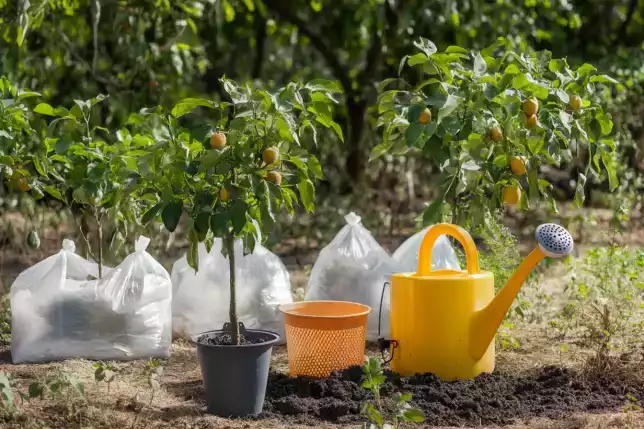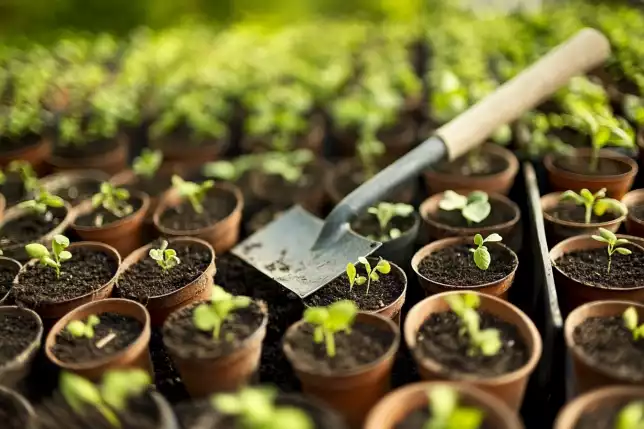Growing exotic fruits in your home garden is a rewarding way to enjoy unique flavors and boost your sustainability efforts. Whether you’re interested in paw paw, passion fruit, or kumquats, this guide will help you cultivate these exotic plants right at home.

1. Why Grow Exotic Fruits at Home?
Growing exotic fruits offers several benefits, from promoting healthier eating habits to reducing your environmental impact by growing your own food. Additionally, the thrill of harvesting unique fruits not easily found in local markets adds an element of excitement.
Key Benefits:
- Health Benefits: Exotic fruits are often rich in vitamins, minerals, and antioxidants.
- Sustainability: Growing your own food reduces your reliance on imported produce.
- Unique Varieties: You can enjoy fruits like dragon fruit, paw paw, or guava straight from your garden.
2. Choosing the Right Exotic Fruits for Your Garden
When starting your exotic fruit garden, choosing the right varieties is crucial. Some fruits are easier to grow than others, making them suitable for beginners.
Beginner-Friendly Exotic Fruits:
- Paw Paw: A cold-hardy fruit with a tropical flavor.
- Passion Fruit: Thrives in warm climates and is perfect for growing on trellises.
- Kumquat: A small citrus that grows well in containers and is cold-tolerant.
Pro Tip: Consider your local climate, available space, and garden setup when selecting exotic fruits to grow.
3. Growing Exotic Fruits in Containers
If you’re limited on space or want to move your plants indoors during colder months, growing exotic fruits in containers is an ideal solution.

Best Varieties for Containers:
- Dwarf Citrus: Meyer lemons and limes are perfect for container growing.
- Guava: Thrives in large pots and can be moved indoors during the winter.
Container Gardening Tips:
- Choosing the Right Container: Use a large pot (at least 18 inches wide) with good drainage.
- Soil and Potting Techniques: Opt for a well-draining, loamy soil mix and ensure the container allows excess water to escape.
Learn more about growing fruits in containers here.
4. Planting Exotic Fruit Trees in the Ground
If you have enough space, planting exotic fruit trees in the ground allows for larger growth and higher yields. Proper soil preparation and spacing are essential for success.
Planting Steps:
- Soil Preparation: Amend the soil with organic compost to ensure it drains well and is rich in nutrients.
- Spacing: Space trees 10-15 feet apart to give them room to grow.
- Light Requirements: Exotic fruit trees generally need full sun (6-8 hours of direct sunlight daily).
5. Pruning and Training Exotic Fruit Trees
Pruning and training your trees properly helps encourage healthy growth and increases fruit production. This is especially important for maximizing space in smaller gardens.
Pruning Techniques:
- Health and Shape: Prune regularly to remove dead or damaged branches and maintain the tree’s shape.
- Training for Vertical Growth: Use stakes or trellises to train trees vertically, ideal for small gardens or limited space.
6. Caring for Exotic Fruits Year-Round
Exotic fruit plants require consistent care to thrive. Regular watering, mulching, and fertilizing are essential to support healthy growth, especially in varying climates.
Year-Round Care Tips:
- Watering: Keep the soil consistently moist, but avoid waterlogging. Adjust watering during dry and wet seasons.
- Mulching: Apply mulch around the base to retain moisture and regulate soil temperature.
- Fertilizing: Use a balanced fertilizer or one designed for fruit trees during the growing season to promote healthy growth.
7. Winter Care and Protection for Exotic Fruits
Many exotic fruits are sensitive to frost and need protection during the colder months, especially in non-tropical climates.
Winter Protection Strategies:
- Overwintering Indoors: For potted plants, move them indoors or to a sheltered area during winter.
- Frost Protection: Cover outdoor plants with frost cloth or burlap to shield them from freezing temperatures.
8. Pests and Diseases in Exotic Fruit Plants
Exotic fruit trees can be susceptible to certain pests and diseases. Identifying and addressing these issues early ensures healthy plants and a good harvest.
Common Pests:
- Aphids: Use neem oil or insecticidal soap to control aphid infestations.
- Mealybugs: These pests can be controlled with rubbing alcohol or insecticidal soap.
Common Diseases:
- Fungal Infections: Ensure proper air circulation around plants to reduce fungal growth.
- Root Rot: Avoid waterlogging the soil to prevent root rot.
9. Harvesting and Enjoying Exotic Fruits
Knowing when to harvest your exotic fruits is key to enjoying them at their peak flavor. Proper storage also extends their shelf life.
Harvesting Tips:
- Signs of Ripeness: Most fruits are ready to harvest when they reach their full color and slightly soften to the touch.
- Harvesting Technique: Use pruning shears or scissors to avoid damaging the plant.
Enjoying Your Fruits:
- Storage: Store exotic fruits like passion fruit and guava in a cool, dry place for up to a week, or refrigerate for longer shelf life.
External Resource: For more exotic fruit-growing ideas, check out this guide on exotic fruits you can grow at home.
Frequently Asked Questions
Q: Can exotic fruit trees grow in colder climates?
A: Many exotic fruit varieties can be grown in colder climates with the right care. You may need to move container-grown plants indoors or provide frost protection during winter.
Q: How long does it take for exotic fruits to grow?
A: Growth time depends on the variety. For example, passion fruit may take 12-18 months to bear fruit, while kumquats could produce fruit within the first year.
Q: Do exotic fruit plants need special soil?
A: Exotic fruits thrive in well-draining soil rich in organic matter. Amend your soil with compost or potting mix to meet their needs.
Conclusion
Growing exotic fruits in your home garden is a fulfilling and exciting experience. Whether you’re planting in containers or in the ground, with the right care, pruning, and protection, you can enjoy a bountiful harvest of unique and flavorful fruits.’


1 thought on “Growing Exotic Fruits in Your Home Garden: A Complete Guide”